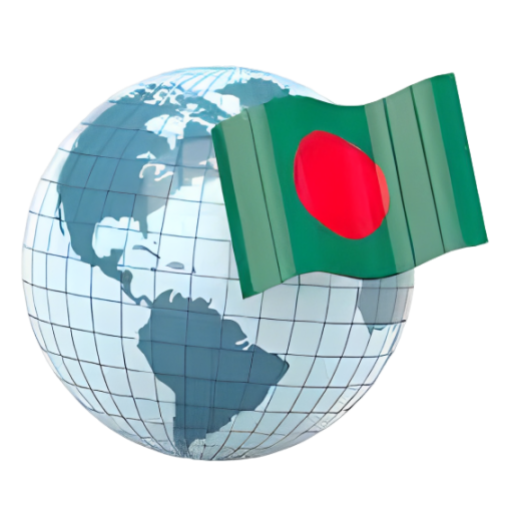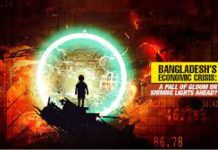Dr. Shariff (sitting at the far right) with the Bangladeshi student community and the family of Dr. Mujibur Rahman (standing in the middle), Dr. Shariff’s friend since their days at the Dhaka medical college (photo, early 1980s)
“Acculturation is a process through which a person or group from one culture comes to adopt the practices and values of another culture, while still retaining their own distinct culture. This process is most commonly discussed regarding a minority culture adopting elements of the majority culture, as is typically the case with immigrant groups that are culturally or ethnically distinct from the majority in the place to which they have immigrated.” – Nicki Lisa Cole (2019)
Dr. Nicki Cole further elaborates acculturation at group and individual levels.
At the group level, acculturation entails the widespread adoption of the values, practices, forms of art, and technologies of another culture. These can range from the adoption of ideas, beliefs, and ideology to the large-scale inclusion of foods and styles of cuisines from other cultures; for example, the embrace of Chinese and Indian cuisines within the U.S. This includes the simultaneous adoption of mainstream American foods and meals by immigrant populations.
Acculturation at the group level can also entail the cultural exchange of clothing and fashions, and of language. This happens when immigrant groups learn and adopt the language of their new home, or when certain phrases and words from a foreign language make their way into common usage. Sometimes, leaders within a culture make a conscious decision to adopt the technologies or practices of another for reasons associated with efficiency and progress.
At the individual level, acculturation may involve all the same things that occur at the group level, but the motives and circumstances may differ. For example, people who travel to foreign lands where the culture differs from their own, and who spend extended periods of time there, are likely to engage in the process of acculturation, whether intentionally or not, in order to learn and experience new things, enjoy their stay, and reduce the social friction that can arise from cultural differences.
Similarly, first-generation immigrants often consciously engage in the process of acculturation as they settle into their new community in order to succeed socially and economically. In fact, immigrants are often compelled by law to acculturate in many places, with requirements to learn the language and the laws of society, and in some cases, with new laws that govern dress and covering of the body. People who move between social classes and the separate and different spaces they inhabit also often experience acculturation, both voluntarily and as required by law. This is the case for many first-generation college students who suddenly find themselves among peers who have been socialized already to understand the norms and culture of higher education, or for students from poor and working-class families who find themselves surrounded by wealthy peers at well-funded private colleges and universities.
Following Nicki Cole, Dr. Farid Shariff attempts to identify Parents dilemma among Bangladeshi immigrants in Canada.
Bangladeshi Diaspora in Canada
A question was raised by a concerned father in the September1990 issue of Moitry, a monthly magazine of Bangladeshi diaspora in Winnipeg (Canada). The question was related to the problem of raising children in the Canadian society. Ann Landers of Winnipeg Free Press may have answers to all questions raised by this parent. However, it is not always possible to answer all bizarre questions raised by our kids. Our answers need to be based on a few basic principles and our knowledge to satisfy our kid’s curiosity as they grow up.
Facts of life need to be explained to the kids as a biological process with the sole objective of procreation and nature’s way of recreating one’s own kind, as it happens in all plant and animal kingdom. Mankind is no exception. It also needs to be explained that for such process to occur, one need to develop physical maturity and development of capabilities to care and rear one’s offspring.
It is also probably important for the parents to recognize that they do not “own”’ their children, although they have them as a gift of God. It is the parents’ responsibility to raise them for the best interests of their kids. If one is temporarily living in this country and plans to take the children back home, then their children should possibly have better exposed to Bangladeshi culture and language. However, we should recognize that requirements are not the same for the ones who live here. This brings us to the basic question of how important is one’s own value system. How much of it should their kids carry as they grow up in this society?
In this country, we have immigrants from all over the globe, as well as people born and raised here with Canadian values. Our kids, sooner or later, will accept the values of this society, whether we like it or not. This tendency is evident in the facts of absorption of immigrant cultures that happened with the Mongols, Aryans, and Arabs in the Indian subcontinent. It is also happening in the great melting pot of the USA.
Dr. Fariduddin Khaled Shariff migrated to Canada in the late 1950s and became a leading orthopedic surgeon in Winnipeg, Manitoba. Winnipeg only had a few (5-6) Bangladeshi families until about the late-1970s, which included higher degree students at the University of Manitoba. Dr. Shariff always extended supports towards the Bangladeshi student community, with his ever-smiling face. Distributing humongous Rui fish (carp) caught from the Lake Winnipeg during the winter by one of his patients among the Bangladeshi families became a regular ritual for Dr. Shariff.
Collated by Moti Rah

Dr. Moti Rahman, a valiant freedom, studied geography at Jahangirnagar University and the University of Manitoba. He is actively involved with the Bangladeshi diaspora in Winnipeg; he retired as an adjunct professor from the University of Manitoba.

Moti Rahman with the alumni of Jahangirnagar University






